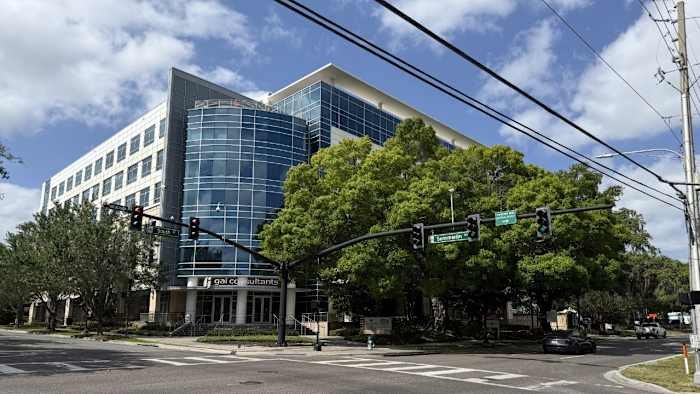The Salt Path is a memoir that has inspired and touched the lives of millions around the world. Written by Raynor Winn, the book recounts the harrowing yet uplifting journey of a couple who, after losing everything, choose to walk the 630-mile South West Coast Path in England. The story’s themes of resilience, love, and the healing power of nature resonated far beyond its original audience, even inspiring a major film adaptation starring Gillian Anderson and Jason Isaacs. But in recent weeks, the memoir has found itself at the center of controversy, raising questions about authenticity, representation, and the broader impact on readers—including those here in Orlando. In this article, we’ll unpack the story’s rise to fame, the adaptation process, the controversy surrounding it, and what it means for Orlando’s avid reading and film-going communities.
The Rise of ‘The Salt Path’: A Story of Hope and Endurance
Published in 2018, “The Salt Path” quickly became a bestseller, lauded for its raw honesty and poetic prose. The memoir chronicles Raynor and her husband Moth’s response to a devastating diagnosis and financial ruin—they embark on a physically demanding trek along the rugged coast with minimal resources. Readers connected deeply with Raynor’s voice and the couple’s unwavering determination in the face of adversity. Book clubs, libraries, and reading groups in Orlando and beyond embraced the memoir as more than just a travelogue; it became a symbol of hope for anyone facing tough times. Local bookstores across Orlando reported surges in demand, and discussions about mental health and resilience found new energy among the city’s literary circles.
The Big Screen Adaptation: Bringing the Story to Life
The story’s cinematic potential was quickly recognized, leading to a high-profile film adaptation. With Gillian Anderson and Jason Isaacs cast in the lead roles, anticipation soared. Orlando’s vibrant film community, including independent theaters and film festivals, eagerly awaited the adaptation’s release. The film offered opportunities for local events, including screenings and discussions about the memoir’s themes and their relevance to Central Florida’s communities. It also spurred conversations about the importance of adapting powerful literary works for broader audiences, and how stories of resilience transcend geographical borders—even reaching those walking their own “salt paths” right here in Orlando.
The Controversy: Questions of Authenticity and Representation
Despite its popularity, “The Salt Path” has recently come under fire. Critics and investigative journalists have raised questions about the accuracy of certain events depicted in the memoir. Some allege that key elements may have been embellished or dramatized for narrative effect. Others argue that the book may underrepresent the complexities of homelessness and chronic illness. Social media debates have erupted, with readers and advocacy groups calling for greater transparency and responsibility in memoir writing.
For Orlando readers and organizations that work with the homeless and chronically ill, the controversy is particularly relevant. Many local nonprofits have used “The Salt Path” to raise awareness about homelessness and resilience. Now, they face tough questions about how literary works shape public understanding of social issues. Should memoirs be held to strict factual standards? Is there room for creative license? These are questions that resonate deeply within Orlando’s engaged and socially conscious community.
The Impact on Orlando’s Literary and Film Communities
The controversy surrounding “The Salt Path” underscores the power of storytelling—and its potential pitfalls. For Orlando’s large population of book lovers, film buffs, and social activists, the debate is more than academic. Local book clubs are re-examining their reading lists, while area libraries are hosting open forums to discuss the responsibilities of memoirists and filmmakers. Meanwhile, Orlando’s film scene is grappling with how adaptations can either enhance or distort the message of beloved books.
Furthermore, the controversy has sparked renewed interest in supporting local authors and filmmakers who tell authentic Central Florida stories. The situation reminds us that while international bestsellers and blockbuster films can inspire, it’s equally important to elevate voices from within our own community—voices that reflect the unique realities of life in Orlando.
Moving Forward: What Can Orlando Readers and Viewers Learn?
“The Salt Path” is a remarkable story, regardless of the current debate. It reminds us that resilience is universal, and that literature and film have the power to foster empathy across borders. However, the controversy also highlights the need for critical engagement with the stories we consume. Orlando readers and viewers can use this moment as an opportunity to ask deeper questions about the narratives we embrace, the issues they illuminate, and the impact they have on our understanding of the world.
Ultimately, whether you’re a lifelong fan of “The Salt Path” or new to the conversation, the memoir’s journey—from beloved bestseller to subject of debate—offers important lessons for us all.
Conclusion
As “The Salt Path” continues to spark discussion and reflection, its story—and the questions it raises—remain deeply relevant to Orlando’s literary and film communities. How do you feel about the controversy? Has it changed your perspective on memoirs or the stories you choose to read and watch? We’d love to hear your thoughts. Leave a comment below and join the conversation!
















